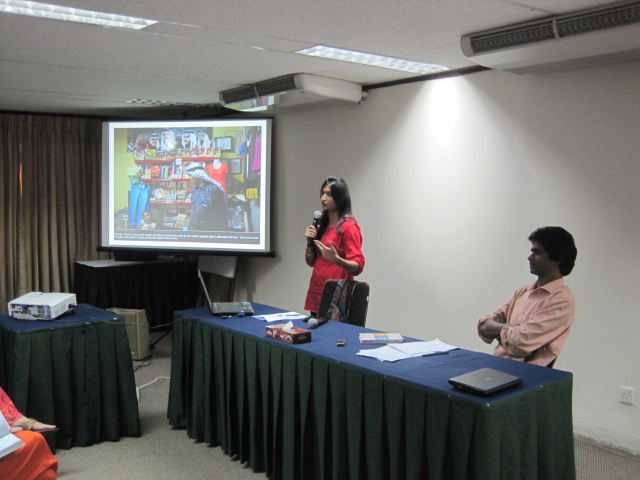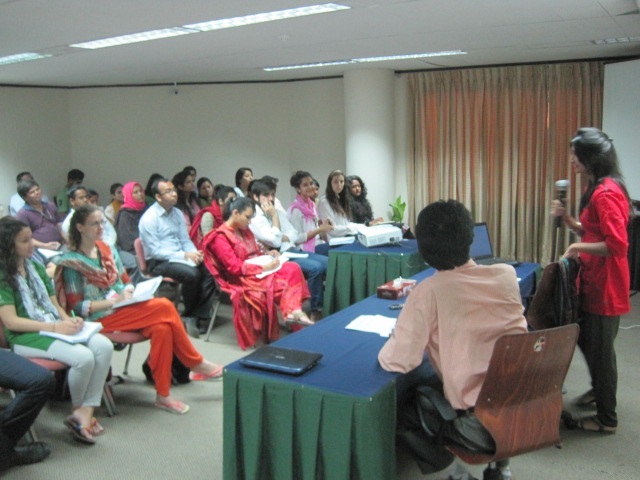By Anjali Sarker
“How can we work without food?”
“I worked for two years for my employer and I’ve only received one year’s salary.”
“My employer removed all of my clothes and raped me…Then he threw me out of the window because he was afraid of his wife. The neighbors took me to the hospital.”
This is how three migrant domestic workers, from Bangladesh, Sri Lanka and Indonesia respectively, described their experiences to Sadaf Hasan, a researcher from Jordanian NGO Tamkeen. They left their countries hoping to get a better life, only to be mistreated and harassed. In the July Innovation Forum, “Invisible Women: Female migrant workers in the Middle East” Sadaf shared her experience of interviewing the female migrant domestic workers and gave the audience a rare chance to hear about the hard realities of their lives.

Migration has always been challenging for Bangladeshi female workers. Sadaf explained, “While migration provides opportunities for women to enhance their economic, social, or gender-related status, often leading to improved livelihoods and self-esteem, it also exposes women to greater vulnerabilities through exploitation, human trafficking, and abuse”. She shared some findings from her research where lack of payment and food were identified as the two biggest reasons why female migrant workers run away from their employers, followed by various forms of abuses.
Figure 1: Reasons that influence female migrant workers to run away from their employers
During her research, Sadaf found that many of the migrant workers had barely any idea where they were going, what type of work they would do, what type of life they would lead, or what language they should learn before arriving in Jordan. Filipino workers enjoy an advantage here as they speak English fluently and can ask for help if in trouble. In this regard, Bangladeshi women suffer a lot due to their poor English. Before going there, many Bangladeshi women did not even know that Arabic dialects vary widely in different parts of the Middle East. Their inability to communicate with their employers creates misunderstandings and often leads to abuse. Domestic workers are especially vulnerable as they live with their employers.
When it becomes intolerable, the only way out is running away and many women do so. However, the Kafala system legally ties the worker with one specific employer and usually the employer confiscates her passport as soon as she enters the house. Therefore, when a worker runs away leaving her passport behind, she becomes an illegal alien in that country. To make things worse, when a worker runs away, the employer files a theft report to the police. This report is (usually) for a “theft” of the amount paid for the woman to travel to the country which is at least 2,000 USD.

While BRAC’s Safe Migration Programme is working to support the potential migrants through various interventions within Bangladesh, how to support the migrants once they leave the country remains a big question. From the session and the discussion afterwards, it was clear that a well-designed pre-departure programme can help the women to manage themselves well in the foreign land. Even simple things like keeping photocopies of passport with the worker and her family, and receiving advice from returned workers can improve the situation. Also, Bangladesh can learn from Sri Lanka, as their government actively promotes female labor migration and Sri Lankan women have been building their future in the international labor market since the 70’s. Since Bangladesh is still a new player in the field, the best time to learn and do things right is now.
Anjali Sarker is an Officer with the BRAC Social Innovation Lab. Follow her on twitter @anjalisarker.
